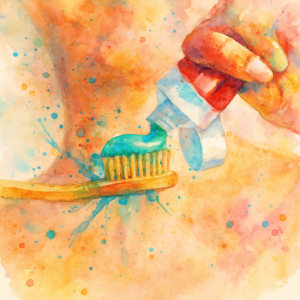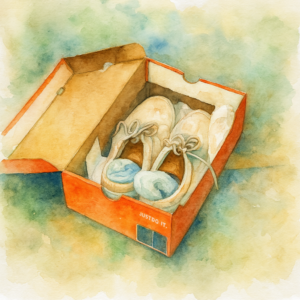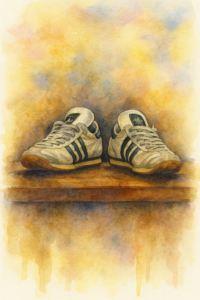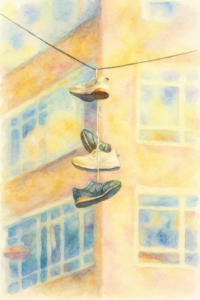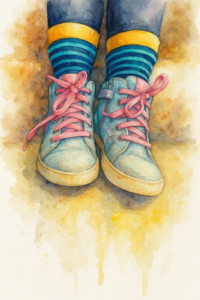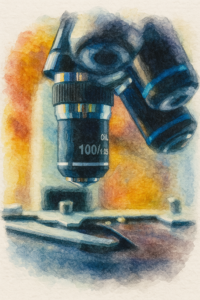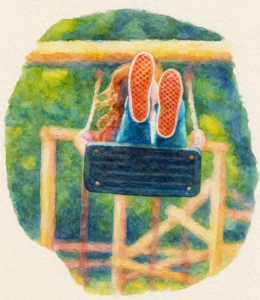Learn French with this clip from Les P’tits Bateaux. Find the full episode here. We do not own the content. The above audio sample and transcription is from Les P’tits Bateaux podcast. We do not own the content. Listen to the entire episode here. What’s opening up for you with this clip? Comment below with…
Start quiz, type what you hear, then join the conversation.
Did you find this one challenging or easy? Did you hear something diffferent? What surprised you? What levels did you complete? Comment below and share what’s opening up for you with this quiz.
Learn French with this clip from Les P’tits Bateaux. Find the full episode here. We do not own the content.
The above audio sample and transcription is from Les P’tits Bateaux podcast. We do not own the content. Listen to the entire episode here.
What’s opening up for you with this clip? Comment below with what was surprising, easy, challenging and/or interesting.
The snippet in English
Find a translation of this snippet here, how much of this did you hear?
Et coucou les petites curieuses et les petits curieux, Pouah ! qui a enlevé ses chaussures ?
Bonjour, je m’appelle Raphaël, j’ai 6 ans et je voudrais savoir pourquoi les pieds ça pue. Au revoir.
Mais oui, ça c’est la vraie question quand même, Raphaël : pourquoi les pieds, ça pue ?
Hey there, curious kids! Yuck! Who took off their shoes?
Hi, my name is Raphaël, I’m 6 years old, and I want to know why feet stink. Bye.
Well, that’s a good question, Raphaël: why do feet stink?
The above translation from Deepl
What does “Pouah !” mean?
Pouah ! — (Yuck! / Ew!)
Pouah ! Ça sent vraiment mauvais ici !
(Yuck! It really smells bad in here!)
Usage notes: Very informal, expressive interjection. Used to show strong disgust—toward smells, tastes, or even ideas.
Cultural note: Common in comic books, children’s language, or dramatic spoken French. Similar to Beurk !, which also expresses disgust. Tone depends on delivery—can be playful or genuinely grossed out
What does “a enlevé” mean?
a enlevé — (removed / took off / took away)
Elle a enlevé ses chaussures en entrant.
(She took off her shoes upon entering.)
Usage notes: Past tense of enlever. Can mean removing clothing, taking something away, or even kidnapping (enlever un enfant, context matters).
Cultural note: In everyday use, enlever often refers to clothing or objects. In legal or news contexts, it can carry serious meaning (abduction). French relies on context to clarify.
What does “ça pue” mean?
ça pue — (that stinks / it smells bad; pue rhymes with French tu)
Ouvre la fenêtre, ça pue ici !
(Open the window, it stinks in here!)
Usage notes: Informal and a bit rude. Common in everyday speech to complain about bad smells. Can also be used figuratively (e.g. ça pue l’arnaque — that reeks of a scam).
Cultural note: Kids and teens use ça pue a lot, but adults may switch to softer phrases like ça sent mauvais in polite company. The directness reflects a typical French bluntness in casual settings.
What does “ça c’est la vraie question” mean?
ça c’est la vraie question — literally means that’s the real question, but in context, it often does carry the sense of “that’s a good question.”
— Pourquoi est-ce qu’on fait ça ?
— Ah, ça, c’est la vraie question.
(— Why are we doing this?
— Now that is the real question.)
Usage notes: Neutral and often slightly ironic or thoughtful. It highlights the core issue or deep point in a conversation.
Cultural note: French speakers use it like English speakers say “that’s the million-dollar question” — not always looking for an answer, but recognizing the question’s weight or complexity.
What does “quand même” mean?
In this clip quand même acts as a filler or emphasis word, adding tone rather than concrete meaning.
Mais oui, ça c’est la vraie question quand même, Raphaël : pourquoi les pieds, ça pue ?
(Yes, that really is the question, Raphaël: why do feet stink?)
Here, quand même adds a touch of irony, insistence, or mild exasperation — like saying:
Come on, that really is the question, isn’t it?
Still though, it’s a fair point.
Honestly, it’s a real question, Raphaël!
Usage notes:
- Very common in spoken French
- Adds emotion, attitude, or insistence
- Can show surprise (Tu viens quand même ?), protest (Mais quand même !), or emphasis — or just fill space with tone
It can be a kind of “color word” more than content
Les P’tits Bateaux Podcast
Official synopsis: Les enfants posent des questions, des spécialistes leur répondent. Jeunes (et moins jeunes !) peuvent poser toutes les questions possibles et imaginables directement par message vocal via franceinter.fr, sauf pendant les vacances.
I recently discovered this podcast from InterFrance and love it. It’s kids posing questions and the host brings in experts to explain. And it’s aimed at young French kids, not French learners. That’s my favorite kind of content. Being for French kids is what makes it so good.
You’ve got real people (a kid, a host, and an expert), all speaking real French — no AI generated stuff here. The kid asks a question, and then an expert explains it in short, clear language. There’s a ton of repetition, natural turns of phrase, and just enough challenge to keep your ears working.
And because it’s meant for French-speaking kids, the adults naturally explain things simply but not condescendingly. You get exposed to rhythm, tone, interjections (bah, ben, alors), and full sentences — but also some real dialogue dynamics. And that’s gold if you’re trying to move from textbook filler to actually speaking and thinking in French.
Improving your French Listening Comprehension with Podcasts
On this site, fast spoken French is finally accessible to all levels. The tool break podcasts into short clips each set to transcription fill-in-the-blank practice. My favorite practice in class is always dictées. While they can seem overwhelming at first, the confidence boost and skills payoff for doing the work pays off. They’re perfect for anyone at any level, from advanced students to those just starting.
We use podcasts and our practice exercises to make it possible for anyone, anywhere to immerse in French with fun and ease. Join us and enjoy French, one short clip at a time. Let’s learn together!
Make the most of the site:
- Daily Podcast Listening: Start your day with a French podcast from our collection. Choose episodes that align with your interests to keep it engaging.
- Active Listening Practice: As you listen, try to pick out key phrases and vocabulary. Use our daily quizzes to test your understanding and reinforce learning.
- Repeat and Shadow: Listen to the same podcast segment multiple times. Try to mimic the pronunciation and intonation to improve your spoken French.
- Note-taking: Jot down new words or phrases you encounter. Review these notes regularly to enhance vocabulary retention.
- Reflect and Respond: After each episode, summarize the main points in French, either in writing or aloud. This helps in consolidating your learning and improving your expressive skills.
- Read More:
- True Beginner or A1 Learners: discover tips learning with podcasts at an introductory level.
- Discover all the podcast clips on FrenchIRL organized by level.
- Top Tips: Here’s how I make the most of my own site.
I created the French In Real Life project because I wanted to understand more than just my teacher and youtubers who cater to learners. I wanted to understand the French I hear in France. I hope you can benefit as much as I have. Become a supporting member for access to all clips.
What’s opening up for you?
Comment below with what’s opening up for you with this clip. What do you love about this? What was challenging? What was easy? Share your learning progress below!
Learn French with this clip from Les P’tits Bateaux. Find the full episode here. We do not own the content. The above audio sample and transcription is from Les P’tits Bateaux podcast. We do not own the content. Listen to the entire episode here. What’s opening up for you with this clip? Comment below with…
Start quiz, type what you hear, then join the conversation.
Did you find this one challenging or easy? Did you hear something diffferent? What surprised you? What levels did you complete? Comment below and share what’s opening up for you with this quiz.
